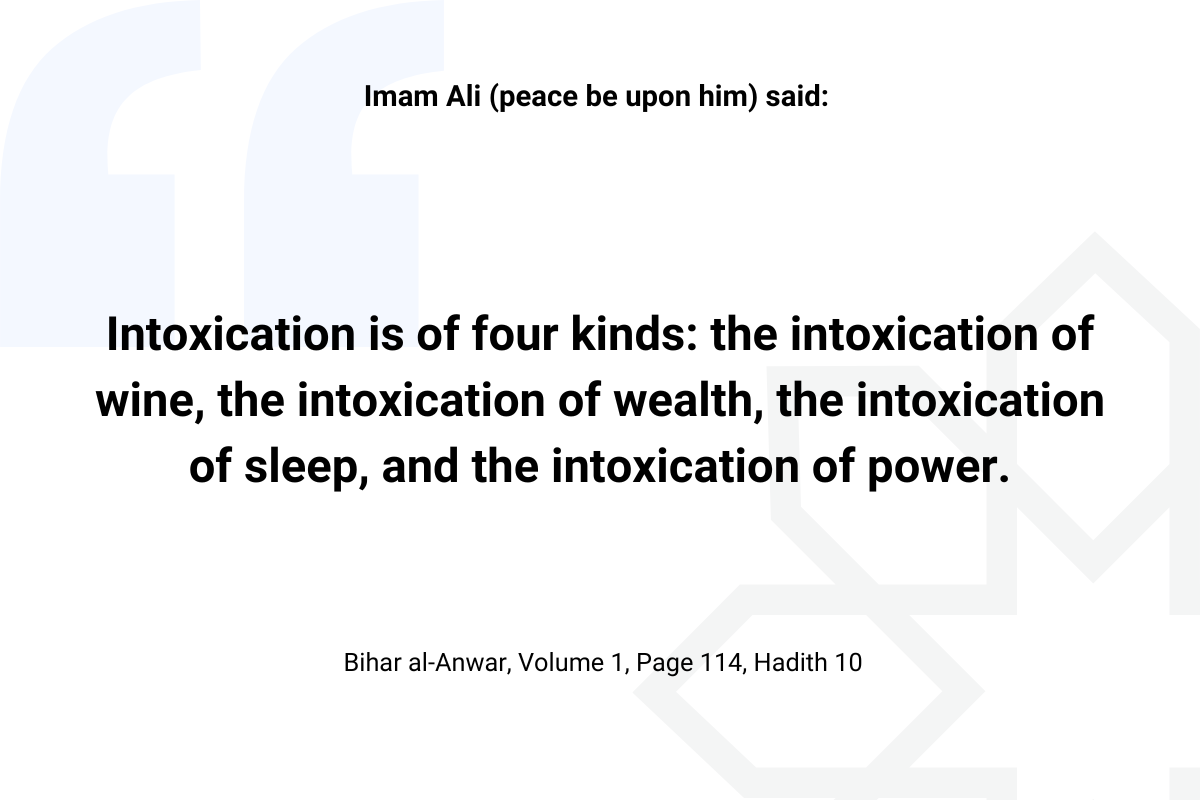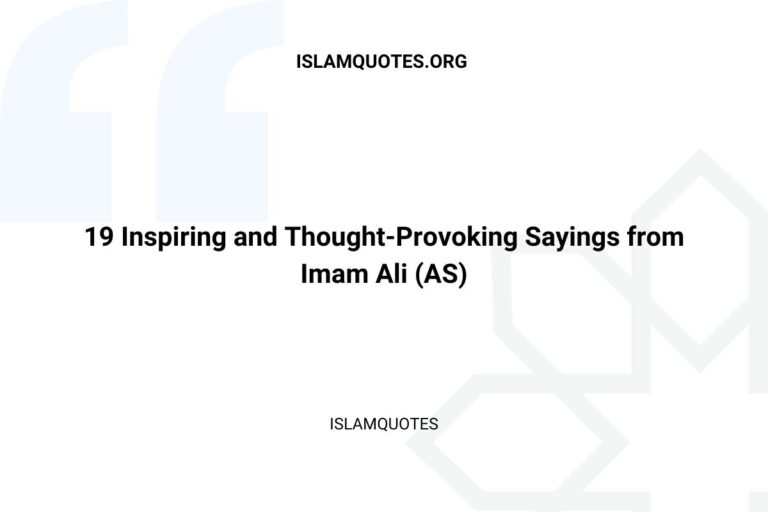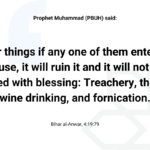Imam Ali (AS) said: ‘Intoxication is of four kinds: the intoxication of wine, the intoxication of wealth, the intoxication of sleep, and the intoxication of power.’
– Bihar al-Anwar, Volume 1, Page 114, Hadith 10
Understanding the Four Types of Intoxication in Islam
Introduction
The insightful saying of Imam Ali (AS), a revered figure in Islam, delves into the various forms of intoxication that can cloud human judgment and spirituality.
This profound statement highlights not only the physical state induced by alcohol but also the metaphorical states caused by wealth, sleep, and power. Each form of intoxication presents its unique challenges and distractions from the path of righteousness.
The Intoxication of Wine
The most recognized form of intoxication is that of alcohol. In Islam, the consumption of intoxicants such as wine is strictly prohibited due to their detrimental effects on the human mind and body. Alcohol impairs cognitive functions, disrupts social harmony, and leads individuals away from moral conduct.
The Quran explicitly warns against intoxicants in Surah Al-Ma’idah (5:90), emphasizing their capacity to hinder worship and piety.
The Intoxication of Wealth
Wealth, while a blessing, can become a source of intoxication if not managed with humility and responsibility. The intoxication of wealth occurs when an individual becomes overly attached to material possessions, leading to greed and the neglect of spiritual and ethical values.
This form of intoxication can divert one’s attention from charitable acts and the remembrance of Allah, as highlighted in various Islamic teachings and the Quran (Surah Al-Humazah, 104:2-3).
The Intoxication of Sleep
Sleep, essential for health and well-being, can become an intoxicant when it leads to excessive laziness and neglect of religious duties.
The intoxication of sleep refers to the state where one prioritizes physical rest over spiritual obligations such as prayer and reflection. Islam encourages moderation in sleep to maintain a balance between rest and active worship, as emphasized in the practice of early morning prayers (Fajr).
The Intoxication of Power
Power, when wielded justly, can bring about positive change. However, the intoxication of power is a dangerous state where individuals become blinded by their authority, leading to arrogance, oppression, and injustice.
This form of intoxication is particularly insidious as it not only affects the individual but also those under their influence. Islamic teachings urge leaders to exercise their power with humility, justice, and accountability, reflecting the principles of the Prophet Muhammad (PBUH) and his rightful successors.
Mitigating the Risks of Intoxication
To avoid the pitfalls of these intoxications, it is crucial to adhere to the guidance provided by Islamic teachings. Regular self-reflection, adherence to prayer, and a commitment to ethical behavior can help individuals maintain a balanced and righteous life.
The wisdom imparted by Imam Ali (AS) serves as a timeless reminder to remain vigilant against these forms of intoxication and to strive for a life centered around spiritual growth and moral integrity.
Conclusion
The four types of intoxication outlined by Imam Ali (AS) provide a comprehensive framework for understanding the various distractions that can lead individuals away from their spiritual and ethical goals. By recognizing and addressing these forms of intoxication, Muslims can cultivate a more balanced, conscious, and pious lifestyle, staying true to the core values of Islam.
For more insightful Islamic quotes, including daily Hadiths and profound sayings, visit our dedicated section on Islamic wisdom.








